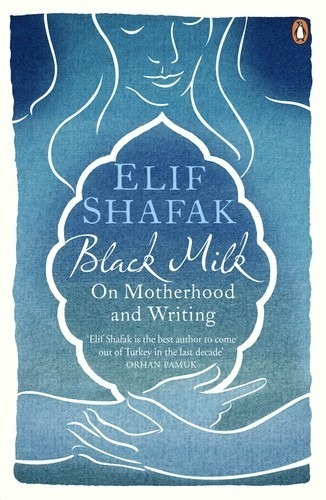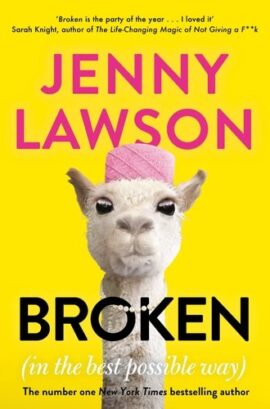Black Milk: On Motherhood and Writing
2.300,00 د.ج
A thoughtful and incisive meditation on literature, motherhood, and spiritual wellbeing from Turkey’s leading female author
After the birth of her first child, Elif Shafak experienced a profound personal crisis. Plagued by guilt, anxiety, and bewilderment about her new maternal role, the acclaimed novelist stopped writing for the first time in her life. As she plummeted into post-partum depression, Shafak looked to the experiences of other prominent female writers–including Sylvia Plath, Virginia Woolf, Simone de Beauvoir, and Alice Walker–for help navigating the conflict between motherhood and artistic creation in a male-dominated society. Searingly honest, eloquent, and unexpectedly humorous, “Black Milk” will be widely embraced by writers, academics, and anyone who has undergone the identity crisis engendered by being a mother.
A thoughtful and incisive meditation on literature, motherhood, and spiritual wellbeing from Turkey’s leading female author
After the birth of her first child, Elif Shafak experienced a profound personal crisis. Plagued by guilt, anxiety, and bewilderment about her new maternal role, the acclaimed novelist stopped writing for the first time in her life. As she plummeted into post-partum depression, Shafak looked to the experiences of other prominent female writers–including Sylvia Plath, Virginia Woolf, Simone de Beauvoir, and Alice Walker–for help navigating the conflict between motherhood and artistic creation in a male-dominated society. Searingly honest, eloquent, and unexpectedly humorous, “Black Milk” will be widely embraced by writers, academics, and anyone who has undergone the identity crisis engendered by being a mother.
| Editeur |
|---|
Produits similaires
When Breath Becomes Air: THE MILLION COPY BESTSELLER
When Breath Becomes Air chronicles Kalanithi’s transformation from a medical student asking what makes a virtuous and meaningful life into a neurosurgeon working in the core of human identity – the brain – and finally into a patient and a new father.
Broken: in the Best Possible Way
‘Broken is the party of the year . . . I loved it’ - Sarah Knight, bestselling author of The Life-Changing Magic of Not Giving a F**k
As her fans already know, Jenny Lawson suffers from depression. In Broken, Jenny humanizes what we all face in an all-too-real way, reassuring us that we’re not alone and making us laugh while doing it. Of course, Jenny’s long-suffering husband Victor, the Ricky to Jenny’s Lucille Ball, is along for the ride.
Hilarious, heart-warming and honest, Broken is about living, surviving, and thriving. A beacon of hope and a wellspring of laughter when we all need it most.
A New York Times, Washington Post and LA Times bestseller.
Musicophilia: Tales of Music and the Brain
The Man Who Mistook His Wife for a Hat
If a man has lost a leg or an eye, he knows he has lost a leg or an eye; but if he has lost a self – himself – he cannot know it, because he is no longer there to know it.
In this extraordinary book, Dr. Oliver Sacks recounts the stories of patients struggling to adapt to often bizarre worlds of neurological disorder. Here are people who can no longer recognize everyday objects or those they love; who are stricken with violent tics or shout involuntary obscenities, and yet are gifted with unusually acute artistic or mathematical talents. If sometimes beyond our surface comprehension, these brilliant tales illuminate what it means to be human.
A provocative exploration of the mysteries of the human mind, The Man Who Mistook His Wife for a Hat is a million-copy bestseller by the twentieth century's greatest neurologist.
Part of the Picador Collection, a series showcasing the best of modern literature.
Man’s Search For Meaning: The classic tribute to hope from the Holocaust
'A book to read, to cherish, to debate, and one that will ultimately keep the memories of the victims alive' John Boyne, author of The Boy in the Striped Pyjamas
A prominent Viennese psychiatrist before the war, Viktor Frankl was uniquely able to observe the way that both he and others in Auschwitz coped (or didn't) with the experience. He noticed that it was the men who comforted others and who gave away their last piece of bread who survived the longest - and who offered proof that everything can be taken away from us except the ability to choose our attitude in any given set of circumstances. The sort of person the concentration camp prisoner became was the result of an inner decision and not of camp influences alone. Frankl came to believe man's deepest desire is to search for meaning and purpose. This outstanding work offers us all a way to transcend suffering and find significance in the art of living.









